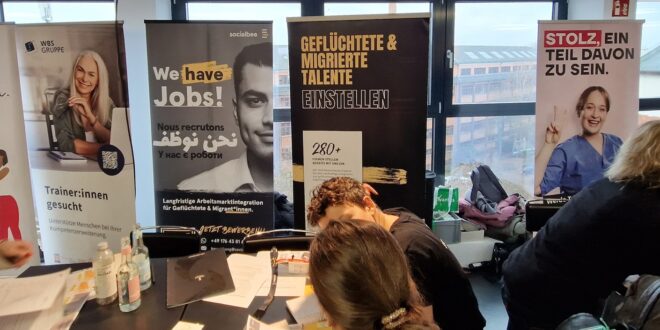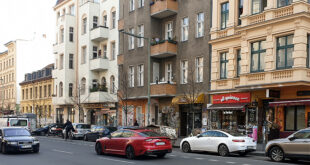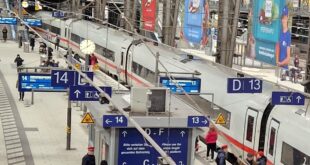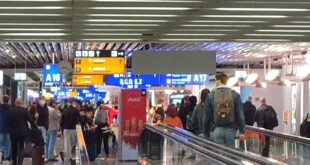Almost all asylum-seekers and recognised refugees say they need more support to find their feet in Germany, according to a study conducted by the German Institute for Economic Research (Deutsches Institut für Wirtschaftsforschung or DIW), which was presented in Berlin on Wednesday and reported by the press agency dpa.
Refugees who arrived in Germany between 2013 and 2016 were surveyed between 2016 and 2020 for the study, whose aim is to find out what types of support are needed by new arrivals, considering their experiences during their journey to Germany.
When asked about five different areas of integration, 98 per cent of them stated that they needed more help in at least one of these areas. 91 per cent of respondents wanted more help with learning German. 82 per cent said they lacked support with access to healthcare. 69 per cent of immigrants said they needed more help with asylum and refugee issues.
According to the study, 62 per cent of participants identified deficits in available support when looking for work. Around one in two (51 per cent) would like more advice on access to education. The author of the study, Ellen Heidinger, found that refugees with an educational qualification or work experience from their country of origin are more likely to receive support than other people seeking protection, according to the dpa report.
Almost half of the respondents (47.2 per cent) did not want to talk about their personal experiences during their flight. According to the DIW, women avoided answering questions about their experiences during their journey more often than men. When asked about specific negative experiences, just under 23 per cent of refugees mentioned fraud. Around 18 per cent of them reported physical assaults and a stay in prison respectively.
According to the DIW, the central Mediterranean route – from Libya or Tunisia to Italy or Malta – is characterised by refugees as particularly dangerous. The eastern land route – from Russia via Belarus, Ukraine or Estonia, for example – received the fewest reports of negative experiences in the survey.
The DIW does not expect the recent decision that refugees will now receive limited healthcare benefits for up to three years instead of the 18 months previously under the Asylum-Seekers Benefits Act to have any savings effect in the healthcare system.
Prior to the amendment at the end of February, the maximum period under which asylum-seekers receive benefits under the Asylum-Seekers Benefits Act was 18 months after which they will receive the normal social support granted citizens and regular foreign residents in the country. The change to the law has negative consequences for those affected and the state, the DIW opines. This is because delayed treatment often requires a more expensive treatment, such as in the case of mental health problems and chronic illnesses.
If an asylum-seeker is recognised as a refugee and is unable to support themselves, they are entitled to more comprehensive benefits under the Social Security Code and no longer under the Asylum-Seekers’ Benefits Act.
In view of the administrative burden and associated costs, the DIW believes it would make sense to roll out the electronic health card for refugees nationwide. Only Berlin, Brandenburg, Bremen, Hamburg, Thuringia and Schleswig-Holstein have rolled them out so far. According to the DIW, the conventional procedure, where asylum-seekers have to obtain a treatment voucher before visiting a doctor, is extremely time-consuming.
The motivation of the study is to find out how those who have come to seek refuge in Germany could be better supported to integrate in view of the labour shortages in the country that necessitate the immigration of skilled workers.
Debates on migration are often about how much migration Germany needs and what kind without considering the integration of immigrants in the country who could play a role in filling the gaps in the labour market, the editorial of the study says.
“It is sometimes overlooked that the experiences during their flight and in the initial period after their arrival have an impact on the further course of integration,” the editorial added. “Negative experiences during the flight must be processed, language, legal and health hurdles have to be overcome.”
Femi Awoniyi with agency report
 THE AFRICAN COURIER. Reporting Africa and its Diaspora! The African Courier is an international magazine published in Germany to report on Africa and the Diaspora African experience. The first issue of the bimonthly magazine appeared on the newsstands on 15 February 1998. The African Courier is a communication forum for European-African political, economic and cultural exchanges, and a voice for Africa in Europe.
THE AFRICAN COURIER. Reporting Africa and its Diaspora! The African Courier is an international magazine published in Germany to report on Africa and the Diaspora African experience. The first issue of the bimonthly magazine appeared on the newsstands on 15 February 1998. The African Courier is a communication forum for European-African political, economic and cultural exchanges, and a voice for Africa in Europe.






























